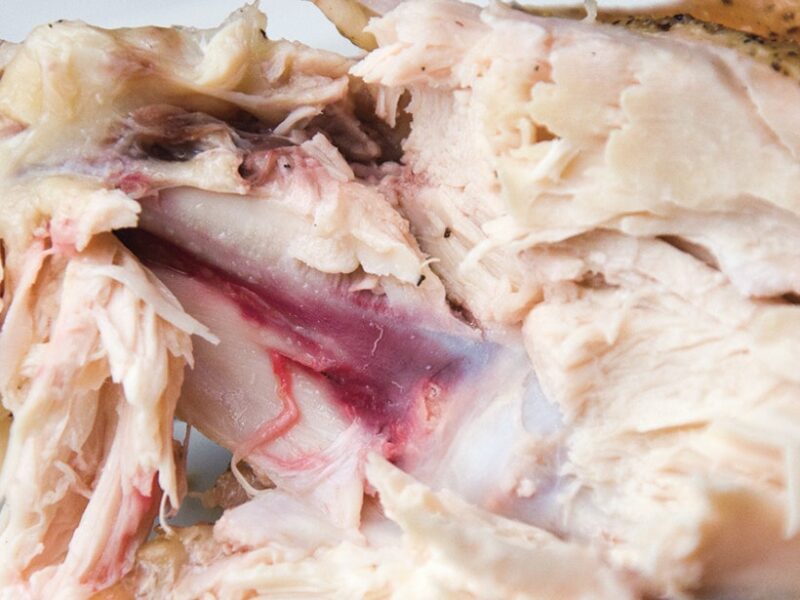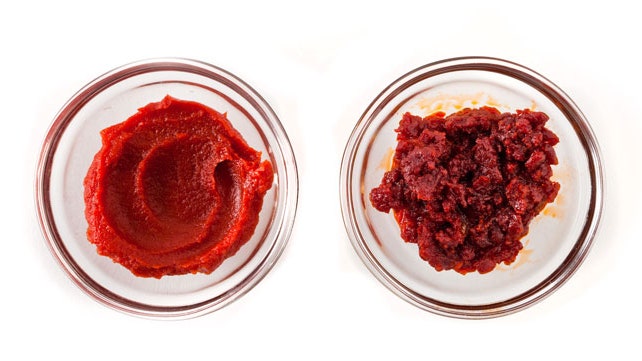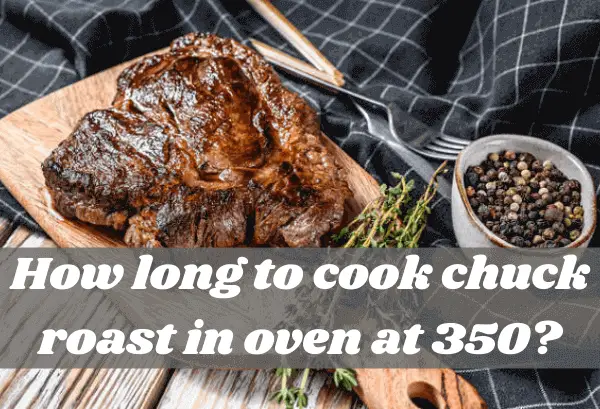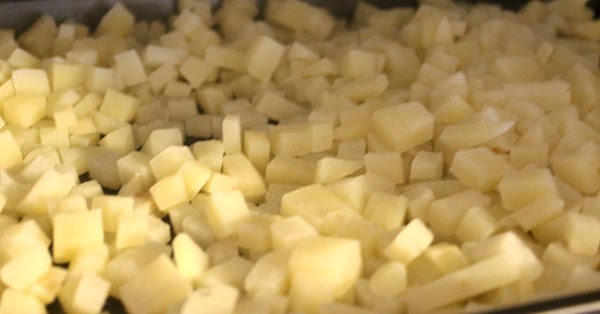Introduction
Cooked chicken blood is a food item that is prevalent in various cuisines across the world, but there’s growing concern about its potential impacts on human health. To ensure that you’re informed and can make conscious decisions about your diet, this article will present all the information you need to know before consuming cooked chicken blood.
Brief Overview
This article will define and explain what cooked chicken blood is, the nutritional content, potential health risks, cultural and traditional uses, regulations surrounding consumption, perceptions surrounding the food item, proper preparation methods for safe consumption, ethical considerations, and whether or not it should be consumed.
What is Cooked Chicken Blood?
Cooked chicken blood refers to the process of boiling or frying chicken blood until it becomes firm and chewy. This food item may also be used as a thickener in soups or stews.
The Prevalence in Different Cuisines
- In Thai cuisine, cooked chicken blood is known as “tiwai” and is commonly used in various dishes like curries and soups.
- In Philippine cuisine, cooked chicken blood is referred to as “betamax” or “coagulated pork or beef blood” and used in dishes like sisig – a dish made from chopped pig head meat seasoned with vinegar.
- In some traditional Turkish dishes, cooked chicken or lamb’s blood may be added to sauce bases for kebabs or grilled meats.
Nutritional Content of Cooked Chicken Blood
Chicken blood contains several nutrients that are beneficial to our health. Here’s a breakdown of some of these nutrients:
Protein
Cooked chicken blood contains an abundance of protein, which helps in the development of muscles and maintaining strong bones. Protein also serves essential hormonal and enzymatic functions in our body.
Vitamins and Minerals
Cooked chicken blood also contains essential vitamins and minerals that are vital for maintaining good health, including iron, vitamin K, vitamin E, vitamin D, sodium, and potassium.
Comparison to Other Meat Sources
Cooked chicken blood can be a valuable source of nutrients with high bioavailability. For example, chicken blood has higher iron content than beef or pork meat per serving size. The nutrient content differs depending on the method of cooking as well as seasoning.
Potential Health Risks of Consuming Cooked Chicken Blood
Unfortunately, consuming cooked chicken blood may present certain health risks that you need to be aware of before adding them to your diet.
Bacterial Contamination
Bacteria such as E.coli and Salmonella may contaminate the blood during or after slaughtering process and can pose health risks if eggs are improperly processed.
Allergic Reactions
Consumption of cooked chicken blood may potentially cause allergic reactions such as skin rashes or hives in people who have demonstrated allergies to poultry products or any other trace elements found in said dishes.
How Can These Risks Be Mitigated or Avoided?
Cooked chicken blood food safety can be improved through awareness and correct preparation methods. Here are some steps you can take:
Safeguard Against Bacterial Contamination by Cooking Thoroughly
Cooking thoroughly before consuming is essential to eliminate any potential risk of bacterial contamination that is present.
Proper Hygiene Practices
These practices include washing hands before handling food, cleaning and sanitizing equipment used for preparation, and keeping food refrigerated or stored properly.
Cultural and Traditional Uses of Cooked Chicken Blood
Cooked chicken blood has a long-standing tradition as a food item in many cultures and societies. Here are some of the ways it’s commonly used:
Indigenous Cuisine
Cooked chicken blood is often used in indigenous cuisines worldwide, including African countries like Ghana, where it is mixed into stews or fried with pepper and onions for added nutrients.
Religious Significance
Cooked chicken blood has religious significance in some cultures that require the use of the blood to purify meat according to religious customs. It is commonly found among Halal dietary practices that require the meat to have been slaughtered in a certain way.
Regulations Surrounding Cooked Chicken Blood Consumption
The consumption of cooked chicken blood is subject to local regulations regarding animal byproducts, slaughter, and processing of meat products.
Global Differences as per Regions
Different regions may have varying regulations about chicken blood consumption. Different states or countries may also restrict the entry of chicken blood-based products in their markets due to religious or cultural reasons.
Perceptions and Stigma Surrounding Cooked Chicken Blood
Certain societal perceptions might be putting people off this nutrient-dense food item. Here are some possible reasons why:
Toxophobia
This refers to a condition where people hold an excessive fear of consuming foreign elements assuming that they might be toxic or potentially harmful when ingested.
Stigma Around the Food Item
There’s a strong taboo and social stigma against consuming blood in many cultures, which extends to chicken blood consumption. Often, certain foods are considered part of a country’s cultural heritage, and they enjoy social acceptance even if they don’t offer significant nutritional value.
Preparing Cooked Chicken Blood for Safe Consumption
Consumers must follow adequate preparation methods to ensure their safety before consuming chicken blood. Here are some suggested steps:
Cleaning
Rinse the chicken blood under running water and pat it dry with a clean paper towel before cooking to eliminate any contaminants present on the surface.
Cooking
Cook the chicken blood thoroughly until it reaches an internal temperature of 165°F (74°C)to prevent bacterial contamination.
Ethical Considerations
The consumption of animal byproducts raises ethical questions that are pertinent to consider. Here are some points to think about:
Animal Welfare
Use of different parts of chickens that are not commonly used, like chicken blood or bones, aims at less food wastage but concerns over animal welfare arise.
Alternative Cooking Methods for A Vegan Option
To reduce the adverse impact on animals’ welfare and mitigate environmental risks associated with this particular agriculture industry, alternatives can be opted such as eating vegan diets with soy-based meat alternatives.
Conclusion
Cooked chicken blood is a staple food item in many cultures worldwide due to its high nutritional value but needs adequate consideration regarding its potential health risks and the need for proper preparation techniques. Moreover, ethical considerations based on animal rights concerns need equal consideration while discussing cooked chicken blood. Ensuring that prior research has been done and safe preparation techniques have been followed will help you enjoy all of the benefits that cooked chicken blood can provide.
1. Is cooked chicken blood safe to eat?
Yes, cooked chicken blood is completely safe to eat as long as it is properly cooked at the right temperature. Cooked chicken blood is a common ingredient used in various cuisines around the world, especially in Asian dishes.
2. What nutritional benefits can be obtained from consuming chicken blood?
Chicken blood contains high levels of iron, protein, and several essential vitamins and minerals that are beneficial for the body. Iron is essential for producing hemoglobin and red blood cells while protein is necessary for building and repairing muscles, tissues, and organs.
3. How should chicken blood be prepared before cooking?
Before cooking, chicken blood should be cleaned thoroughly by washing it with cold water and removing any clots or impurities. It can then be drained and mixed with seasoning before cooking in a stir-fry or soup.
4. Are there any cultural or religious reasons why chicken blood should not be consumed?
In some cultures or religions, consuming animal blood may be considered taboo or forbidden. It is important to consider these beliefs and dietary restrictions when preparing meals for individuals who may abstain from consuming animal blood.







